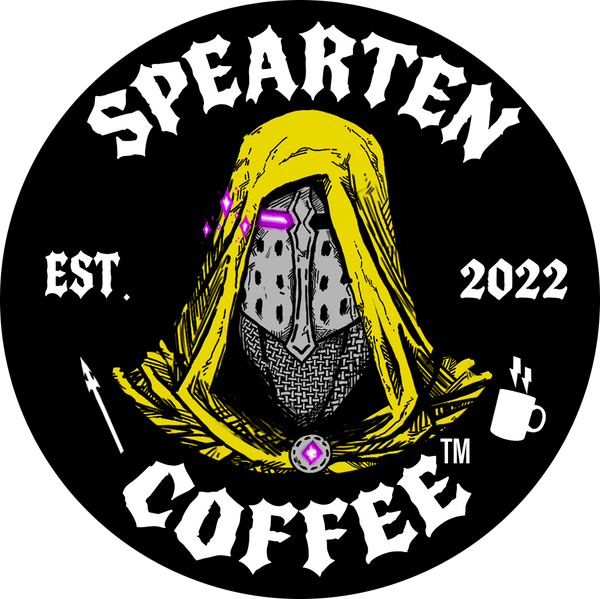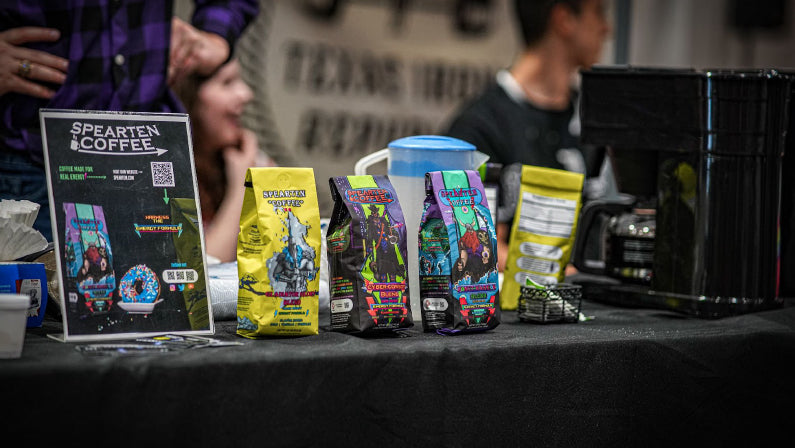The pursuit of the perfect cup of coffee involves a delicate balance of various factors, each contributing to the final flavor and aroma that delights the senses.
From the quality of the beans to the brewing method, every detail plays a crucial role in crafting that ideal cup.
Here's how you can truly make the perfect cup of coffee and how you can achieve it.
What Beans Should You Choose for the Perfect Cup?

Choosing the right coffee beans is the foundation of making the perfect cup of coffee. The type of beans you select can significantly impact the flavor, aroma, and overall experience of your brew.
- Arabica vs. Robusta: Arabica beans are known for their smooth, complex flavors and lower caffeine content, making them a popular choice for high-quality coffee. Robusta beans have a stronger, more bitter taste and higher caffeine content, often used in espresso blends.
- Single Origin vs. Blends: Single origin beans come from a specific region or farm, offering unique flavors and a distinct profile. Blends combine beans from different regions, creating a balanced and consistent flavor profile.
- Freshness: Freshly roasted beans retain more of their natural oils and flavors. Look for beans with a recent roast date to ensure you're getting the best quality.
- Organic and Fair Trade: Choosing organic and fair trade beans supports sustainable farming practices and ethical labor standards. These beans are often grown without harmful pesticides and offer a cleaner, more natural taste.
How Does the Roast Level Affect the Flavor?
The roast level of coffee beans plays a crucial role in determining the flavor profile of your coffee. Light roasts retain more of the beans' original flavors, often characterized by fruity or floral notes and higher acidity.
Medium roasts strike a balance between the beans' inherent flavors and the development of deeper, caramelized notes, offering a well-rounded taste. Dark roasts, on the other hand, emphasize bold, robust flavors with lower acidity and more pronounced bitterness, often featuring smoky or chocolatey undertones. The choice of roast level depends on personal preference and the type of coffee experience you're seeking.
What Is the Best Way to Grind Coffee Beans?
Grinding coffee beans just before brewing is essential for preserving their flavor and aroma. The grind size should be matched to your brewing method for optimal extraction and taste.
- Coarse Grind: Best for French press and cold brew methods. The larger grind size allows for a slower extraction, preventing over-extraction and resulting in a smoother, less bitter cup.
- Medium Grind: Ideal for drip coffee makers and pour-over methods. This grind size provides a balanced extraction, delivering a well-rounded and flavorful coffee.
- Fine Grind: Perfect for espresso machines and Aeropress with a short brewing time. The fine grind allows for a quick and efficient extraction, producing a rich and intense flavor.
How Should You Measure Coffee for the Ideal Brew?
Measuring coffee accurately is crucial for achieving a consistent and delicious cup. The right ratio of coffee to water can vary based on personal preference and brewing method.
Using a Scale
Weighing your coffee beans ensures precision and consistency in every brew. A common ratio is 1:16, meaning 1 gram of coffee for every 16 grams of water.
Using Tablespoons
If you don't have a scale, you can use tablespoons as a rough guide. Generally, two tablespoons of coffee grounds per 6 ounces of water is a good starting point.Adjust water up to 8 ounces or amount of coffee depending on strength of coffee, or reduce amount of grounds as needed.
Adjusting for Taste
Personal preferences vary, so feel free to adjust the amount of coffee to achieve your desired strength. Experimenting with different ratios can help you find the perfect balance for your palate.
What Are the Different Brewing Methods, and Which Is Best?

There are numerous brewing methods, each offering a unique coffee experience. The best method depends on your taste preferences, equipment, and the amount of time you want to invest.
- Drip Coffee Maker: This popular method is convenient and easy to use, providing a consistent cup of coffee. It's ideal for those who want a straightforward brewing process without much hassle.
- French Press: Known for producing a rich, full-bodied coffee, the French press allows the oils and fine particles to remain in the brew. It's perfect for those who enjoy a robust and flavorful cup.
- Pour Over: This method involves manually pouring hot water over coffee grounds, offering precise control over the brewing process. It produces a clean and nuanced cup favored by coffee enthusiasts.
- Espresso Machine: Espresso machines force hot water through the finely ground coffee, creating a concentrated and intense coffee shot. It's the go-to method for those who enjoy bold flavors and the versatility of espresso-based drinks.
How Does Water Quality Impact Your Coffee?

Water quality is a critical factor in brewing coffee, as it makes up about 98% of your cup. Using filtered or bottled water can significantly improve the taste of your coffee by eliminating impurities and unwanted flavors.
Hard water, with high mineral content, can cause over-extraction, making your coffee taste bitter. Conversely, soft water, with low mineral content, can result in under-extraction, leading to a flat and dull flavor. Ensuring you use clean, fresh water helps you achieve a well-balanced and flavorful brew every time.
What Is the Ideal Brewing Temperature and Time?
The ideal brewing temperature for coffee is between 195°F and 205°F (90°C to 96°C). Brewing within this range ensures proper extraction of the coffee's flavors without scalding the grounds, which can result in bitterness.
The brewing time varies depending on the method used: for a French press, 4 minutes is recommended, while drip coffee makers usually take around 5 minutes. Espresso requires a much shorter time, typically between 25 to 30 seconds. Pour-over methods can range from 3 to 4 minutes, allowing for a controlled and precise extraction.
Should You Add Anything to Enhance the Flavor?
Enhancing the flavor of coffee can be a matter of personal preference, and there are several ways to do it. Some people enjoy adding milk or cream to create a richer, smoother texture, while others might prefer a splash of flavored syrups for added sweetness and complexity.
Spices like cinnamon or nutmeg can also add a warm, aromatic twist to your brew. Additionally, a pinch of salt can sometimes help balance the bitterness and bring out the natural sweetness of the coffee. Experimenting with different additions can help you discover your perfect cup.
How Can You Store Coffee Beans to Keep Them Fresh?

Proper storage of coffee beans is essential to maintain their freshness and flavor.
To keep your beans at their best, consider the following tips:
- Airtight Container: Store your coffee beans in an airtight container to protect them from exposure to air, which can lead to oxidation and stale flavors.
- Cool, Dark Place: Keep the container in a cool, dark place, away from direct sunlight and heat sources. Light and heat can degrade the quality of the beans and diminish their flavor.
- Avoid Refrigeration: Do not store coffee beans in the refrigerator, as the moisture can cause them to lose their flavor and absorb odors from other foods.
- Buy in Small Quantities: Purchase coffee beans in smaller amounts to ensure you use them while they're still fresh. Freshly roasted beans typically have the best flavor within two weeks of roasting.
What Are Some Common Mistakes to Avoid When Brewing Coffee?
Avoiding common mistakes can significantly improve the quality of your coffee. Be mindful of these pitfalls to enhance your brewing experience:
- Incorrect Grind Size: Using the wrong grind size for your brewing method can result in over-extraction (bitter taste) or under-extraction (weak flavor). Adjust the grind size accordingly to achieve the desired strength and flavor.
- Inconsistent Water Temperature: Fluctuations in water temperature during brewing can lead to inconsistent extraction and affect the flavor. Use a thermometer to ensure water is within the optimal brewing range (195°F to 205°F).
- Over-Brewing: Leaving coffee grounds in contact with hot water for too long can lead to bitterness. Follow the recommended brewing times for your method to avoid over-extraction.
- Poor Quality Water: Using water with strong odors or flavors or water that is too hard or too soft can negatively impact the taste of your coffee. Use filtered water for the best results.
Enhance Your Coffee Experience with Spearten Products
Discover the perfect cup of coffee with Spearten, where quality meets innovation. Explore SPEARTEN COFFEE's range of premium beans and cognitive boosting coffee grounds, designed to elevate your brewing experience.
Whether you're a coffee enthusiast or a casual brewer, SPEARTEN COFFEE offers products that promise exceptional taste and satisfaction. Contact us today to order!

